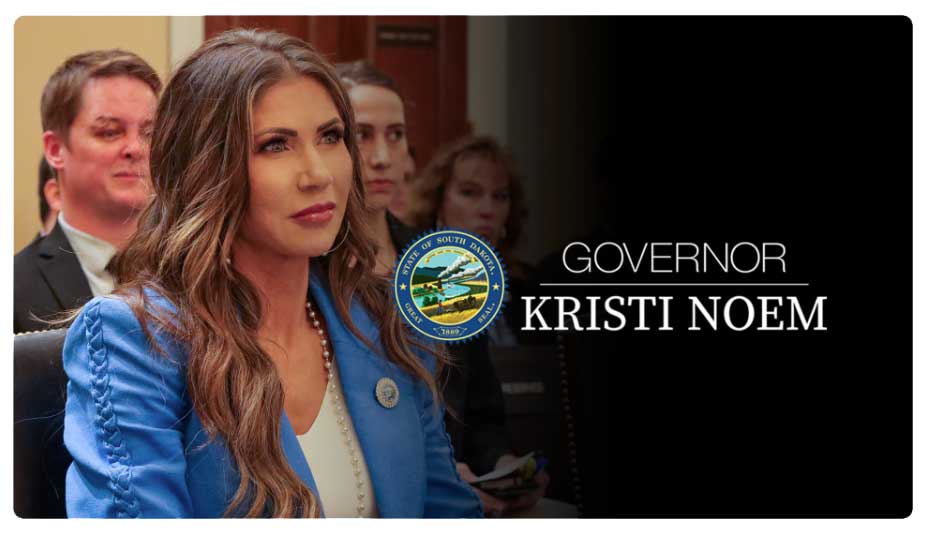
Freedom for Life: Why a Crying Baby is a Good Thing
By: Governor Kristi Noem
January 12, 2024
I recently delivered my State of the State Address to a joint session of our State Legislature. Towards the end of my speech, a small kiddo started crying up in the gallery. Now, to some that would probably be an unwanted interruption, but in South Dakota, we will always welcome a crying baby. And that’s a good thing considering the fact that our state has the highest birth rate in the nation – so we have a lot of crying babies around!
This particular kiddo did have some great timing, though. The crying started just as I started discussing Freedom for Life. We couldn’t have planned it better if we tried!
That crying represented every South Dakotan’s Freedom to get off to the right start. That includes before they are born, after they are born, and continues until the day they die. In that spirit, I just signed a proclamation making 2024 “Freedom for Life Year” in the state of South Dakota.
The best way that we can advance “Freedom for Life Year” in South Dakota is by taking care of both moms and their babies before birth and after. Every human life is precious from the conception of an unborn child until natural death. And being pro-life means valuing every child’s life before their birth and throughout their life. Being pro-life also means valuing and protecting the lives of mothers.
Research has shown that the first 1,000 days of a child’s life are the most significant days for their development. This time stretches from the moment a child is conceived through their 2nd birthday. The fields of neuroscience, biology, and early childhood development all give us powerful insights into how nutrition, relationships, behaviors, and environments in the first 1,000 days shape future outcomes.
During that critical time, both mom and baby have to be well nourished and cared for to lead to healthy physical, emotional, and mental growth as a child’s brain and body develop. The first 1,000 days really does set the foundation for the rest of a child’s life.
In South Dakota, we have been dedicated to providing moms, babies, and their families with extensive resources to help them through those first 1,000 days and beyond. We offer the Bright Start program to get one-on-one nursing services to first-time moms and their babies. And my Department of Social Services’ Pregnancy Health Home will offer care coordination to all pregnant mothers enrolled in Medicaid.
Life.SD.gov compiles all of our resources in one convenient location. I encourage moms to go there to find answers to any questions they may have about pregnancy, parenting, available financial resources, adoption, and more.
I am proud that South Dakota respects life. And I am looking forward to expanding our efforts to support mothers and their babies throughout 2024, “Freedom for Life Year.”
I want to thank that little kiddo for crying during my State of the State Address. Thank you for reminding all of us why we do what we do. I promise that I will keep doing all that I can to make sure you (and every other baby in South Dakota) has Freedom for Life.
###

The LifeSD.gov is missing an important piece of life for children in the first 1000 days and that is quality childcare (daycare). With centers closing parents are left scrambling to find care so that they can work. Young children are at risk in that ANYONE in SD can open their home to take care of 12 kiddos. If this is truly the year of Freedom for Life, young children deserve to be in high quality care homes, centers or with their parents. This crisis in SD is multi-faceted and needs Governor Noem, the Legislature and the citizens attention to set infants up for success through recognition and action. All humans deserve to build brains (intellect), personality (emotions), spiritually, and bodies (physical), especially young children who cannot speak for their needs.